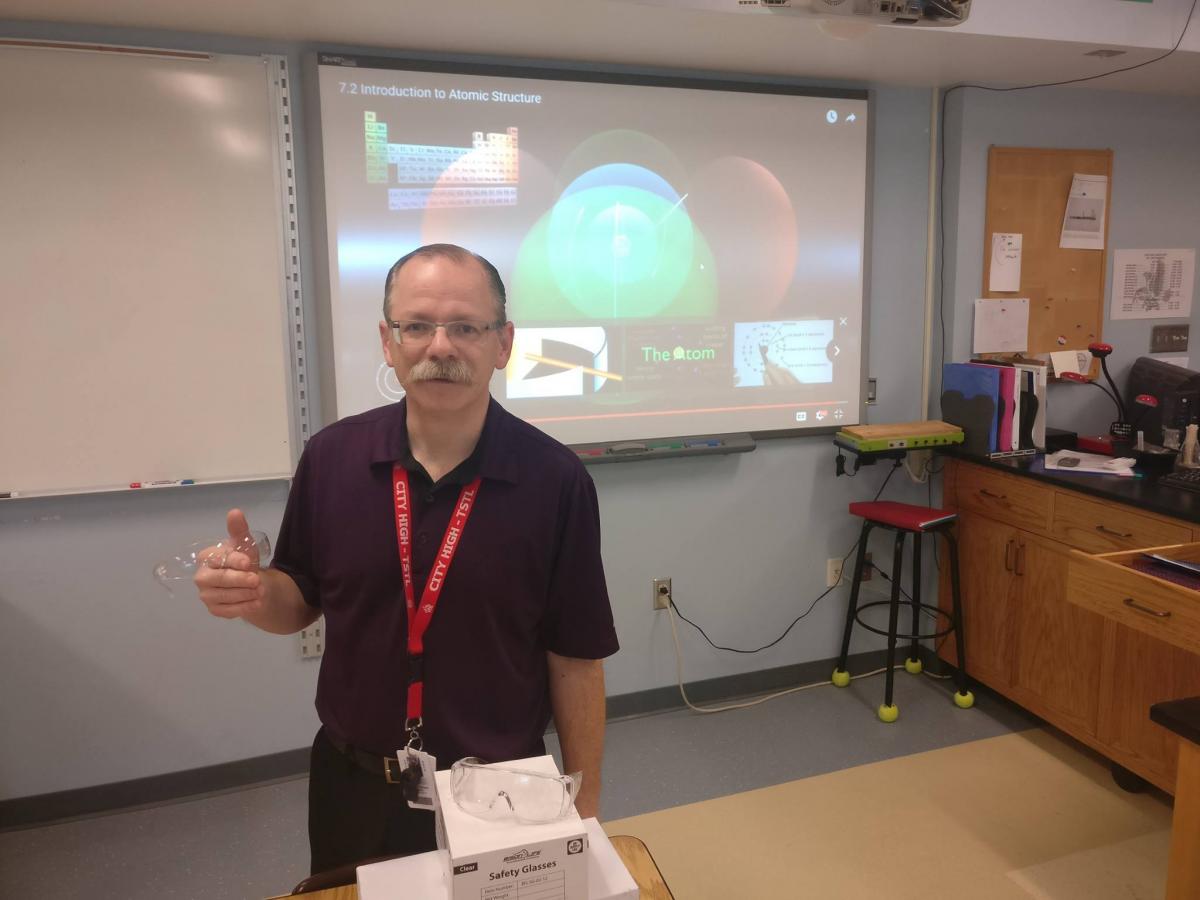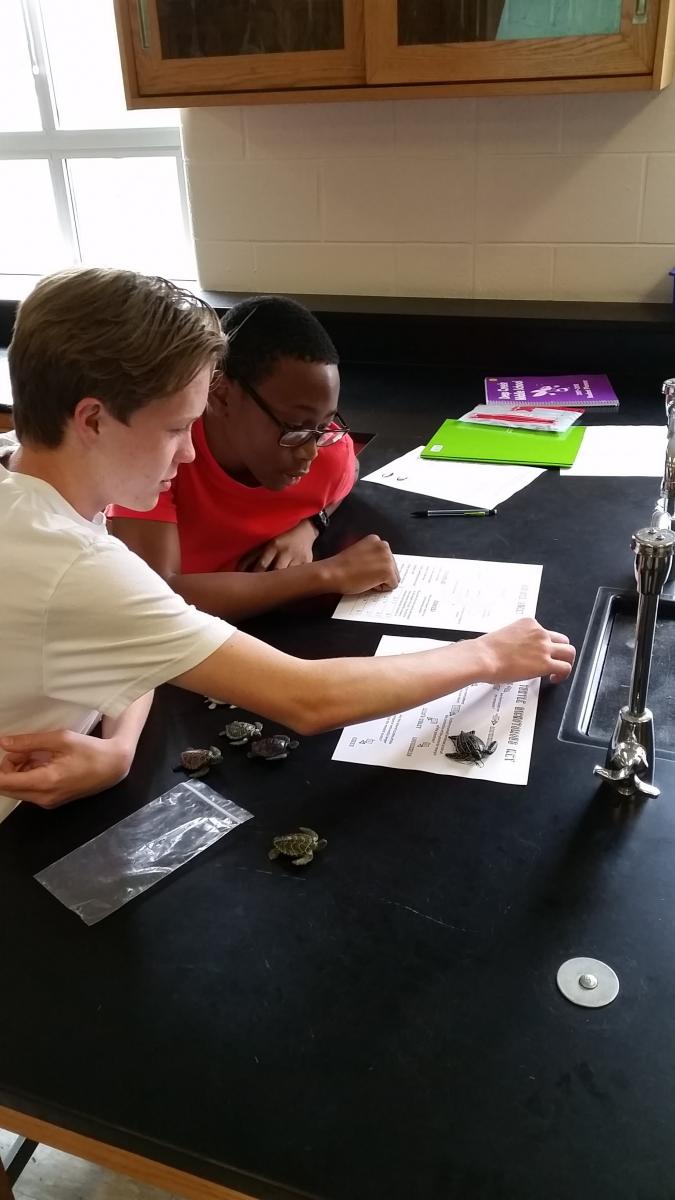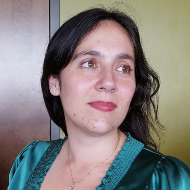One of the most satisfying components of the NCSE Science Booster Club program is its microgrant program, in which some of the funds raised by the booster clubs are given away to teachers so that they can provide their students with more hands-on science experiences. In my last blog post, I wrote about some of the teachers who received basic measurement equipment through the Fall 2017 SBC microgrant program. Lots of teachers ask for scales, thermometers, and other basic equipment that allows students to interact with the world like scientists: making predictions about natural phenomena, taking objective measurements, and observing concrete changes.
There is another class of basic need for which we also received numerous requests: safety equipment. Many teachers asked for for basic safety equipment, such as goggles and gloves. We’ve dealt with this need before. In one of our recent cycles, we gave safety goggles to a teacher who had to have her students share safety equipment. Before our grant, only a third of her class could participate in lab at any given time.
This cycle, we heard from teachers who had outdated equipment, like elastic goggles that were uncomfortable or could not be worn over glasses. They wrote about how difficult it was to inspire scientific curiosity when students had to use equipment that tore or broke their hair, marked their skin, or kept them from being able to see. We also heard from teachers who had no safety equipment at all, putting many hands-on lab activities out of reach.
We were able to grant Dean Clearmont, of Iowa City, Iowa, new safety equipment that will benefit 400 students a year. He wrote that his old safety equipment caused students to “resist [lessons] strongly due to the discomfort the eyewear causes.” Now his students are safe, comfortable, and able to learn.

We are grateful to be able to help teachers meet their students’ basic needs. We’re also glad when we get qualifying grant requests that will help lots of students learn specifically about climate change or evolution. One of our more unconventional durable equipment requests came in from Paula Labbe, of Chesapeake, Virginia, who asked us for turtles for the 460 students she teaches a year.

These small plastic turtles are part of an evolution education kit. Students use the turtles to reconstruct a phylogenetic tree based on physical evidence. The kind of diversity and physical variation found in the natural world can be challenging to bring into the classroom in a hands-on way (although teachers in the Bay Area have the option of borrowing some supplies from us!). This kit is a great way to let students make predictions, observations, and create hypotheses about relatedness, while also letting them handle adorable turtles. Additionally, this extremely durable kit should be around to help students learn for years—unless some of the turtles “swim off.” You have to admit, they’re pretty tempting.
We feel great when we can help teachers and students have better classroom experiences. We want to give teachers the basic equipment they need, and we’re glad when we can help them bring hands-on education on climate change and evolution into their classrooms. But in our next story from this fall’s microgrant cycle, we were able to help a teacher in an even more exciting way: by helping her build momentum and attract partners for a sustainable community project. Learn about it in our next post, with a report from NCSE’s Claire Adrian-Tucci, who visited the recipient in person.

